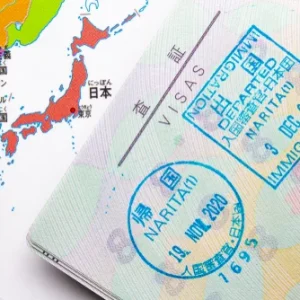Understanding the Investment Relationships Between Overseas and Japanese Corporations Required for the ‘Intra-Company Transferee’ Residency Status in Japan
September 21, 2023
When considering the status of residence for an intra-company transferee in Japan, several critical factors pertain to the relationships between overseas and Japan companies:
Head Office and Branch Office Relationship:
In principle, intra-company transferees are individuals transferred within the same company. This includes transfers between the head office and branch offices. The overseas company does not need to be the head office; as long as there is a head office-branch relationship between Japan and the overseas company, the transfer qualifies as an intra-company transferee.
Transfers from the head office to a branch office and vice versa are permitted, but transfers between branch offices are generally not allowed.
Intercompany Relationships:
The concept of an “intra-company transferee” encompasses not only transfers within the same company but also transfers within affiliated companies.
This includes transfers between a parent company and its subsidiaries or transfers to affiliated companies. The definitions of parent company, subsidiary, and affiliate are specified in the Regulation on Terminology, Forms, and Preparation Methods of Financial Statements (Ministry of Finance Order No. 59 of November 27, 1963)
As global companies may involve various types of transfers, like transfers between subsidiaries and to sub-subsidiaries, it’s advisable to consult specialists like administrative scriveners or the Immigration Bureau if you encounter complex cases.
Changes in Company Affiliation During the Transfer:
Consider this scenario: an expatriate is initially transferred from an overseas parent company to a Japanese subsidiary, residing in Japan under the status of intra-company transferee with a three-year stay period.
If, for instance, one year after arriving in Japan, the overseas parent company is acquired, and the capital relationship with the Japanese subsidiary no longer exists, the individual may lose their status of residence. If one does not engage in activities related to their status of residence for three months or more without a valid reason, their status of residence can be revoked.
Representative Office:
In some cases, when a foreign company enters the Japanese market, it establishes a representative office in Japan. The company dispatches a representative to Japan for purposes like market research.
In such cases, it may not strictly be an intra-company transfer within the same company or affiliate. However, in specific circumstances, it’s still possible to obtain the status of “intra-company transferee.” Detailed information regarding this scenario may be explored further.







